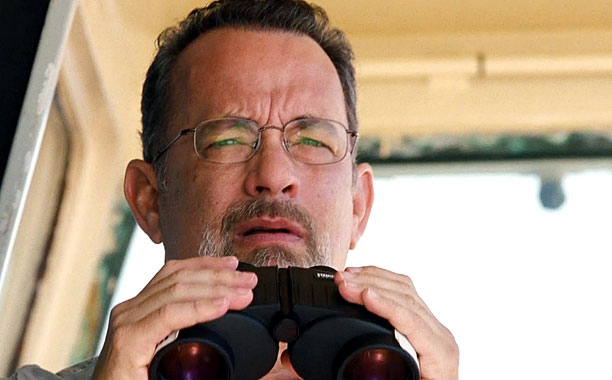by: Eric J. Grimm
Directed by Paul Greengrass. Starring Tom Hanks.
Paul Greengrass is not bound by the rules of action filmmaking and given the perfect storm of recognizable true story, an audience’s ignorance of the particulars of said story, and a well-known leading man, he can get away with it. His minimalist, realistic approach has critics salivating but it doesn’t work for me. He’s never in the business of asking why, preferring to let a few lines of stale dialogue provide some context. He’s more concerned with the how. His dedication to accuracy is admirable. He’s not consistently playing fast and loose with facts like Ben Affleck and crew did in Argo, but his account comes solely from one source who has been contradicted by multiple other sources. His Captain Phillips is merely another straightforward docudrama for those without enough of an attention span to read about the events depicted.
Greengrass’ approach to directing actors is the most tiresome element of his realistic style. I’ll go so far as to say that casting non-actors is almost never a good idea, because their poor performances stick out, especially when they’re opposite a megastar such as Tom Hanks. Michael Chernus is laughably bad as Phillips’ first officer, bringing no urgency as he clinically recites his lines. Barkhad Abdi fares a little better as Somali hijacker Muse, but Greengrass does the bare minimum to tell the story from his perspective. Greengrass is also inconsistent in committing to realism. There are way too many Michael Bay-esque sweeping helicopter shots of ships in the ocean. His intentions may be pure, but the end product is at once glossy and muddy.
There’s no question that the piece mainly serves as career rehabilitation for Tom Hanks, who hasn’t had a hit since 2009. I always think he’s overrated and this film didn’t change that. He has a singular terrified expression that grows old after thirty minutes. His post-climax scene is clearly designed to net him an Oscar-nomination and the film’s producers are quick to point out that it was improvised. It just reeks of desperation. The clinical way the rest of the film operates cheapens this attempt at genuine emotional outpouring.
Greengrass may feel that he’s doing something very important in bringing this story to the screen, but he refuses to dive deep. His depiction of Phillips as a crafty hero comes at the expense of any interesting analysis of Somali pirates. He thinks a brief glimpse into their lives at home serves as enough of a responsible representation to give balance to the story, but I’d be surprised if anyone left the film feeling bad for the pirates. This is why docudramas almost never work. Crucial perspectives are lost amidst a desire to create suspenseful pacing. It puts filmmakers and audiences in the position of irresponsible, uncritical thinkers, and we would be better off without the genre altogether.



















